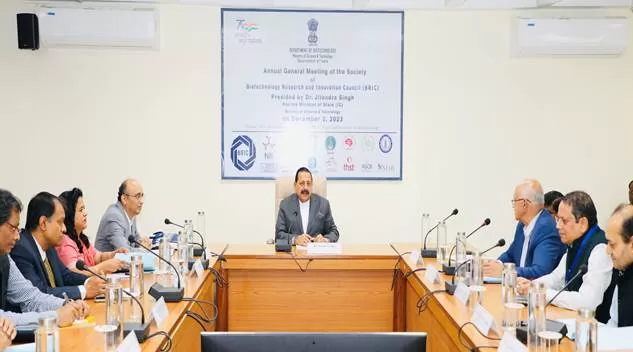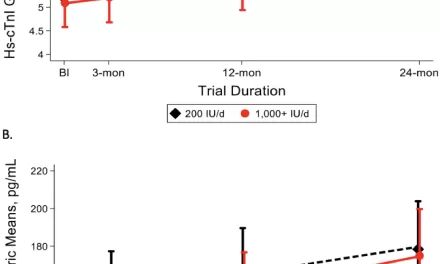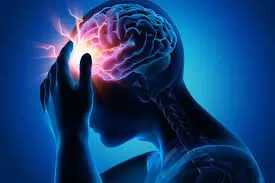
During the inaugural gathering of the BRIC Society, which was established and officially recognized on November 10, 2023, following Cabinet approval, Dr. Jitendra Singh, Union Minister of State (Independent Charge) for Science & Technology, and MoS PMO for Personnel, Public Grievances, Pensions, Atomic Energy, and Space, emphasized the imperative need to define “Bio-vision” for Bharat.
Highlighting the pivotal role of the newly formed Biotechnology Research and Innovation Council (BRIC), Dr. Singh underscored its alignment with Prime Minister Narendra Modi’s vision for an Atma Nirbhar Bharat. The council is poised to bolster biotechnological research and innovation, particularly in sectors like healthcare, food security, and energy requirements.
Dr. Jitendra Singh underscored the remarkable 13-fold increase in India’s bio-economy over the past decade, citing Prime Minister Modi’s aspiration for India to rank among the top-10 countries in the global biotech landscape. He envisioned BRIC as a testament to this ambition, fostering collaboration among exceptional minds on a unified platform through the spirit of Sabka Prayas.
Functioning as the nodal agency for Biotechnology promotion in the country, the Department of Biotechnology (DBT) under the Ministry of Science and Technology gained Cabinet approval for streamlining its 14 Autonomous Institutions into a single Apex Autonomous Society, BRIC. This strategic move aims for centralized governance to amplify the impact of biotech research nationwide.
Describing the BRIC meeting as a watershed moment in India’s biotech ecosystem, Dr. Singh expressed optimism about BRIC’s potential to significantly contribute to India’s economic and employment landscape. Seeking input from esteemed institution-builders, he sought their perspectives in defining Bharat’s Bio-Vision, emphasizing their pivotal role in advancing this noble mission.
Dr. Jitendra Singh highlighted BRIC’s transformative agenda, including the retention of distinct research mandates for each of the 14 subsumed institutions under one governing body. He emphasized the utilization of institutional lab spaces for external researchers, fostering collaborations for start-ups emerging from institutional research.
Additionally, BRIC and its affiliated institutes were encouraged to engage in public-private research partnerships and receive endowments from non-governmental sources. Dr. Singh outlined plans for new Ph.D. programs, common course curricula, immersion training, and the infusion of scientific positions across BRIC institutions to bolster their scientific prowess.
The restructuring initiative undertaken by DBT aligns with the government’s directive on “Rationalization of Autonomous Bodies,” aiming to enhance governance, efficiency, interdisciplinary collaborations, and resource allocation.
The 14 institutes falling under the purview of BRIC include prestigious entities like the National Institute of Immunology, National Brain Research Centre, and others, reflecting a consolidated administrative unit geared towards groundbreaking research.
Inaugurating the ‘Zero Waste Life on Campus’ program, Dr. Jitendra Singh envisioned this initiative as a stride toward sustainable waste management across BRIC campuses. Aligned with Prime Minister Modi’s Mission LiFE movement, the program is poised to pioneer integrated waste management techniques, fostering collaborations and setting a precedent for institutions across India to adopt a zero-waste approach.










